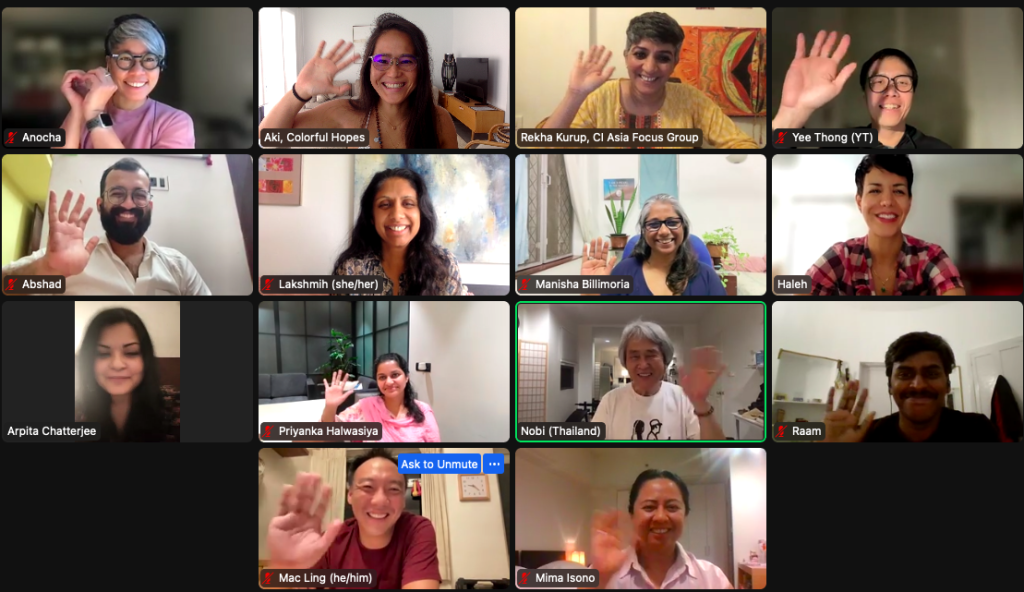By Aki Shigihara
In the midst of Asia, with its various vibrant cultures and rich traditions, comes a complex history. This ongoing narrative can be challenging to navigate on the path to healing and understanding, and at times, can feel almost impossible to find a way through. In Japan, while the movement towards talking about mental health does exist, discussing depression, anxiety, or other mental health challenges is still considered ‘crazy,’ and you are often seen as the mentally ‘weak’ one in the community. I, myself, used to believe that crying or showing any ‘negative/bad’ emotions was a sign of weakness.
In the Asia Focus Group, we delve into the complex dynamics of families within the Asian context. Our recent discussion shed light on the diverse experiences within the ‘happy’ Asian family archetype. This dynamic often leaves us with unspoken pains, unmet needs and shame if we are to mention that any ‘negativity’ exists within the family. This results in our clients believing that how they were treated was normal and okay. This practice is deeply ingrained in our cultural expectations. Furthermore, the pervasive power of pretence within the dynamic serves as a double-edged sword: it protects the family’s public image while imprisoning us in feelings of denial and suppression. This insight has brought about profound discussions on the importance of authenticity, as well as the challenges to fostering it in this dynamic.
Our mission with this matter is to illuminate the shadows cast by the seemingly ‘happy’ family units, where smiles often mask unspoken sorrows, and to offer a sanctuary where these stories can be shared, heard, and healed. As we navigate these narratives, we also investigate how individuals may take on spiritual beliefs or practices as a means of avoiding unresolved emotional issues. Our focus group provides a unique platform for participants to share insights, fostering a compassionate space for collective understanding and growth. We also discuss what we have found helpful in therapeutic settings and how we can navigate these cultural challenges with our clients, etc.

Asia accounts for about 60% of the world’s suicides, with China, India, and Japan accounting for about 40% of the world’s suicides. But why is that?
There tends to be a hesitancy to acknowledge, mention, or address mental health issues within dynamics that maintain a certain image of the ‘family,’ which is more often than not, driven by the fear of judgement or social stigma. This leads to deepened emotional distress and a reluctance to confront challenges. The pressure to appear perfect fosters unrealistic expectations, feelings of inadequacy, and a lack of genuine emotional support, which can exacerbate feelings of isolation and despair.
This focus group emphasises the critical importance of addressing emotional health as a fundamental aspect of overall well-being. As we continue this fulfilling yet challenging journey, the Asia Focus Group is committed to expanding our understanding of the delicate relationship between family dynamics, cultural expectations, and spiritual beliefs. Within this community, we are dedicated to continuing our contribution to the broader discourse on therapeutic practices, particularly in addressing the cultural nuances that influence our approach to healing.
Through these discussions and insights, we come to realise the importance of tailoring therapeutic approaches to respect and incorporate individuals’ cultural backgrounds and beliefs, and that this is our priority in order to create a container of safety. By fostering a community grounded in empathy and understanding, we pave the way for profound personal and collective growth, proving that even in our deepest explorations of pain, we are not alone.